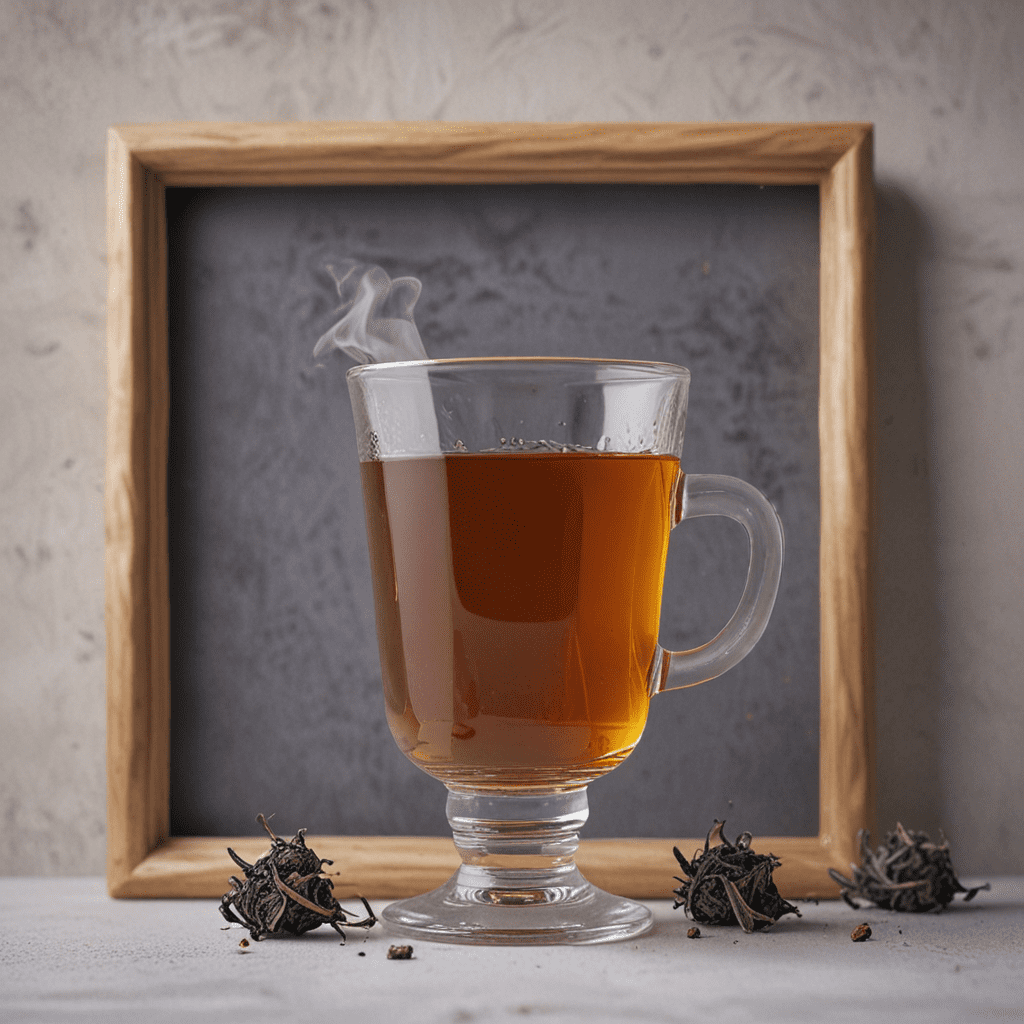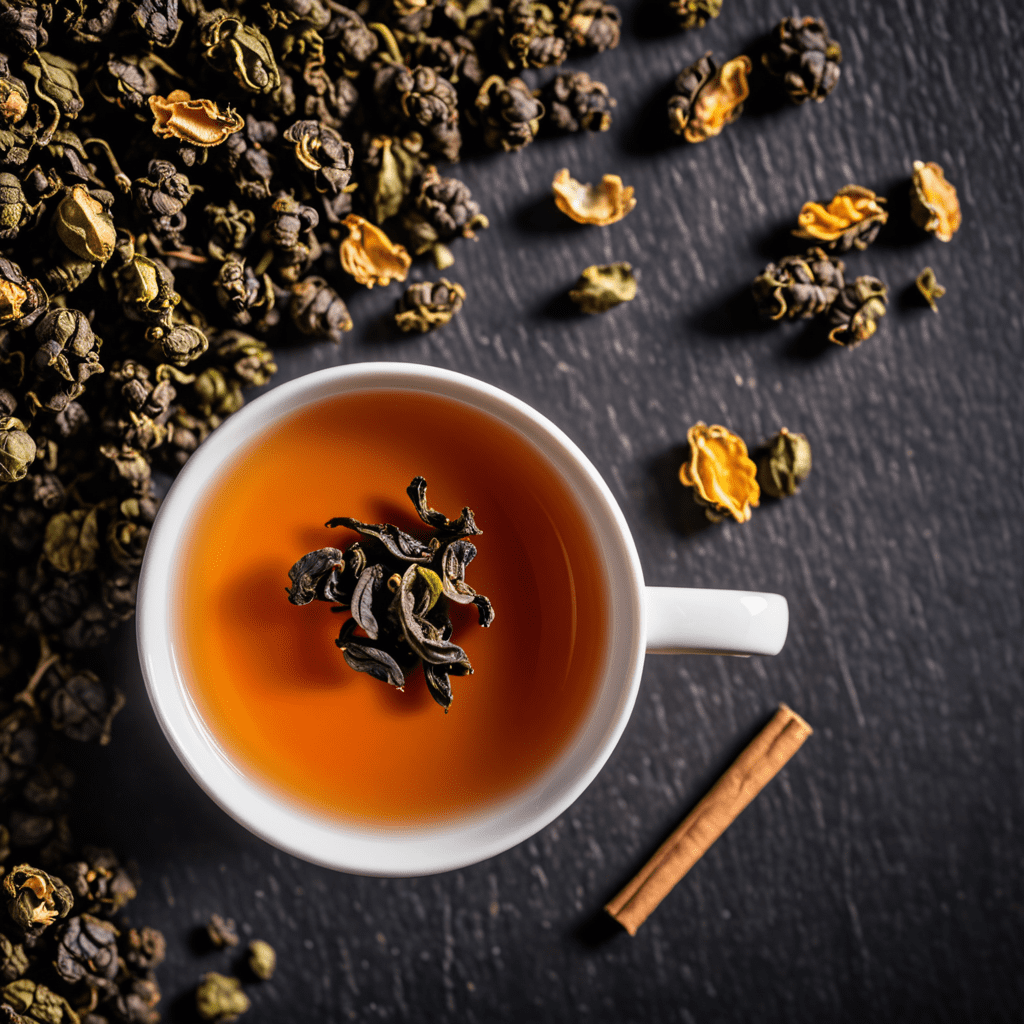Introduction: The Allure of Chai Tea
Chai tea, an aromatic and comforting beverage, has captivated tea enthusiasts for centuries. Its unique blend of spices, black tea, and often milk or a milk alternative creates a flavorful and invigorating experience that is perfect for the chilly winter months. Chai's popularity extends far beyond its traditional origins, making it a beloved drink enjoyed by tea lovers worldwide.
Origins and History: A Journey through Centuries
Chai's roots can be traced back to ancient India, where it was originally known as "masala chai." This traditional tea was crafted using a blend of aromatic spices, such as cinnamon, cardamom, and ginger, steeped in black tea. Over time, chai made its way to other parts of the world, including the Middle East and Europe, where it underwent adaptations and variations while maintaining its essence.
The Aromatic Spices: Unlocking the Heart of Chai
The distinctive flavor of chai tea stems from the harmonious blend of spices used in its preparation. Commonly employed spices include cinnamon, cardamom, ginger, cloves, and black pepper. Each spice contributes a unique aromatic note, creating a symphony of flavors that tantalizes the taste buds. Cinnamon adds a warm and slightly sweet touch, while cardamom imparts a minty and refreshing essence. Ginger provides a zesty kick, cloves offer a subtle sweetness and pungency, and black pepper adds a hint of warmth and depth.
Black Tea: The Foundation of Chai's Boldness
Black tea forms the backbone of chai, providing a robust and full-bodied base for the aromatic spices to shine. Strong black teas, such as Assam or Darjeeling, are often preferred for their ability to withstand the addition of spices without becoming overwhelmed. The boldness of the black tea balances the sweetness of the spices, resulting in a harmonious blend that satisfies both the palate and the soul.
Brewing Methods: From Tradition to Innovation
Traditionally, chai tea was brewed in a clay pot called a "kulhad" over an open fire. In modern times, various brewing methods have emerged, including using a teapot, French press, or even a simple tea bag. Each method imparts a slightly different flavor profile, allowing tea enthusiasts to experiment and find their preferred brewing technique.
6. Dairy Delights: Enhancing Chai's Creaminess
The addition of dairy to chai tea is a popular way to enhance its richness and creaminess. Traditionally, whole milk was used, but modern variations include skim milk, almond milk, soy milk, or oat milk. The type of dairy used can subtly alter the flavor profile of the chai, allowing tea enthusiasts to customize their beverage to their preferences. Dairy not only adds a velvety texture but also mellows the intensity of the spices, creating a well-balanced and indulgent treat.
7. Sweetness Refined: Balancing Chai's Flavors
Sweeteners play a crucial role in balancing the bold flavors of chai tea. Traditional Indian chai is often sweetened with jaggery, a natural sweetener derived from sugarcane. However, sugar, honey, or maple syrup are commonly used alternatives. The amount of sweetener added depends on personal taste, but it is essential to find a harmonious balance that enhances the spices' flavors without overpowering them. A touch of sweetness complements the chai's warmth, creating a comforting and satisfying beverage.
8. Health Benefits: A Treasure Trove of Well-being
Chai tea is not only a delightful beverage but also offers a treasure trove of health benefits. The spices used in chai, such as ginger, cinnamon, and cardamom, possess anti-inflammatory and antioxidant properties. Studies suggest that chai may aid digestion, boost immunity, and improve heart health. Additionally, black tea contains antioxidants that can help protect against cellular damage and chronic diseases. Enjoying a warm cup of chai tea can be a wholesome and revitalizing experience that nourishes both the body and soul.
9. Modern Variations: Reinventing the Classic
While traditional chai tea remains a beloved classic, modern variations have emerged to cater to diverse preferences. Some popular variations include adding a touch of vanilla extract for a sweeter and creamier profile. Chai lattes, where chai tea is combined with steamed milk and often flavored with vanilla or pumpkin spice, have gained immense popularity. Other innovative twists include incorporating different spices, such as star anise or nutmeg, to create unique and flavorful blends. These modern variations offer a fresh perspective on the timeless classic, allowing tea enthusiasts to explore new and exciting chai experiences.
10. Conclusion: A Toast to Chai, the Ultimate Winter Beverage
Chai tea, with its aromatic spices, robust black tea, and comforting warmth, has captured the hearts of tea lovers around the world. Its versatility allows for endless variations and adaptations, ensuring there is a perfect chai for every palate. As the winter season descends upon us, a cup of chai tea becomes the ultimate companion, offering solace and rejuvenation. So let us raise a cup in celebration of this timeless beverage, the perfect antidote to the cold and a testament to the enduring power of tradition.
Frequently Asked Questions (FAQs)
What is the best type of black tea for chai?
Strong black teas, such as Assam or Darjeeling, are preferred for their ability to withstand the addition of spices without becoming overwhelmed.
How much sweetener should I add to chai tea?
The amount of sweetener added to chai tea depends on personal taste. Start with a small amount and gradually adjust until you find the desired balance of flavors.
Can I make chai tea without milk?
Yes, you can make chai tea without milk. Simply omit the milk or use a milk alternative such as almond milk, soy milk, or oat milk.
Is chai tea good for weight loss?
While chai tea can be part of a healthy diet, it is important to note that it contains calories from the spices, milk, and sweetener.
How can I store chai tea?
Store chai tea in an airtight container in a cool, dry place. The tea will keep for up to two weeks.


